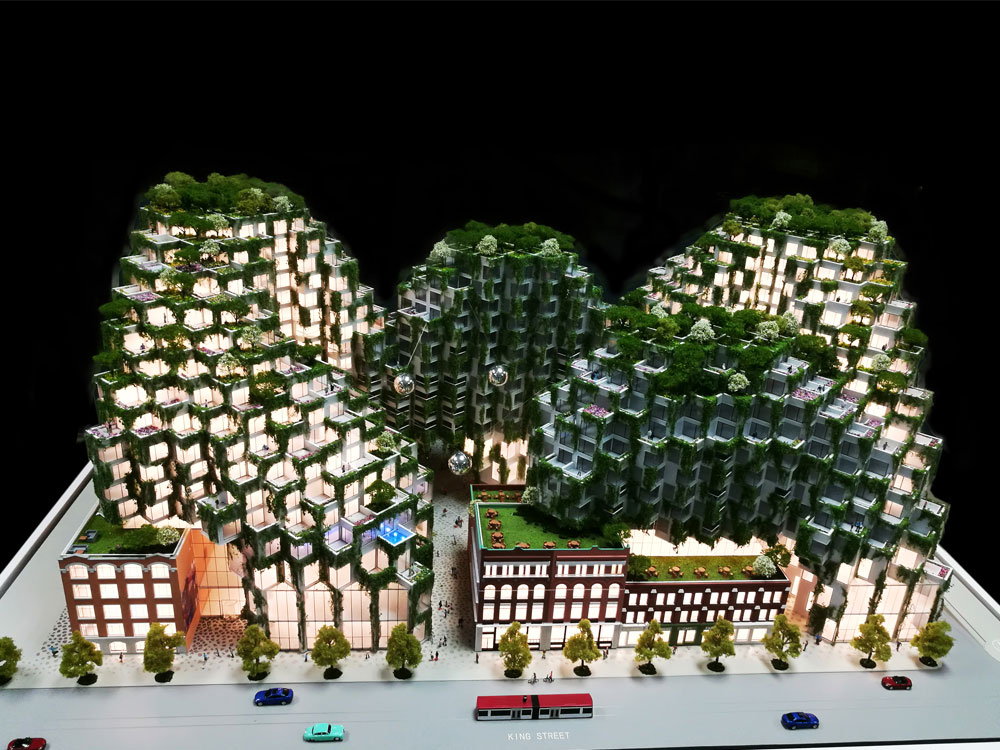The realm of commercial property development is undergoing a revolutionary transformation, driven by the power of visual representation. Architectural models have emerged as indispensable tools for developers, investors, and designers alike. These intricate miniature representations, crafted by skilled architectural model makers, offer a tangible glimpse into the future of urban landscapes. As the demand for innovative commercial spaces continues to rise, custom architectural model services are playing a pivotal role in bringing visionary concepts to life, enabling stakeholders to make informed decisions and streamline the development process.
Table of contents:
Using Detailed Models to Attract Tenants for Office Complexes
How Architectural Model Making Influences Retail Space Design
The Impact of Interactive Architecture Models on Hotel and Resort Planning
Showcasing Industrial Facility Designs Through Precision Model Creation
Using Detailed Models to Attract Tenants for Office Complexes
When it comes to leasing office spaces, the ability to visualize the final product is paramount. Architectural modeling services have become invaluable in this regard, offering potential tenants a comprehensive view of their future workspace. These meticulously crafted models showcase everything from the building’s exterior design to the layout of individual floors, helping businesses envision how they can optimize the space for their needs. By employing custom architectural model services, developers can highlight unique features, such as green spaces, collaborative areas, and state-of-the-art facilities, giving them a competitive edge in the market. The tangible nature of these models allows tenants to interact with the space in a way that 2D renderings simply cannot match, fostering a sense of connection and excitement about the property.
How Architectural Model Making Influences Retail Space Design
The retail sector has embraced architectural model making as a crucial element in the design and planning of shopping centers and standalone stores. These models serve as powerful tools for visualizing foot traffic flow, optimizing store layouts, and creating enticing visual displays. Architectural model makers can recreate intricate details of storefronts, kiosks, and common areas, allowing retailers to fine-tune their designs for maximum impact. By utilizing custom architectural model services, developers can experiment with different configurations, ensuring that each retail space is optimized for both aesthetics and functionality. This attention to detail in the planning stage can lead to increased customer engagement and higher revenue potential for tenants, making the property more attractive to potential investors and retailers alike.
The Impact of Interactive Architecture Models on Hotel and Resort Planning
In the competitive world of hospitality, first impressions are everything. Interactive architectural models have revolutionized the way hotels and resorts are planned and marketed. These sophisticated models, created through advanced architectural modeling services, allow investors and guests to explore every aspect of the property before it’s built. From room layouts to amenities and landscaping, these models provide a comprehensive overview of the guest experience. Custom architectural model services can incorporate lighting systems, movable elements, and even augmented reality features, creating an immersive presentation that captures the essence of the property. This level of detail not only aids in the design process but also serves as a powerful marketing tool, helping to secure funding and generate buzz long before the first brick is laid.
Showcasing Industrial Facility Designs Through Precision Model Creation
The industrial sector benefits greatly from the expertise of architectural model makers in visualizing complex facility designs. Custom architectural model services are particularly valuable when planning large-scale industrial complexes, warehouses, and manufacturing plants. These models help stakeholders understand the layout of production lines, storage areas, and logistics systems in a three-dimensional context. By employing architectural modeling services, companies can optimize their workflow, identify potential bottlenecks, and ensure compliance with safety regulations before construction begins. The ability to physically manipulate and examine these models allows for collaborative problem-solving and innovation, ultimately leading to more efficient and cost-effective industrial spaces.
The integration of architectural models into commercial property development has revolutionized the way projects are conceived, planned, and executed. From office complexes to retail spaces, hotels, and industrial facilities, these tangible representations provide invaluable insights and foster better decision-making. As the industry continues to evolve, the role of architectural model makers and custom architectural model services will only grow in importance, shaping the future of our built environment one miniature masterpiece at a time. The synergy between visionary design and precise model creation is paving the way for smarter, more efficient, and visually stunning commercial properties that meet the demands of the modern world.

